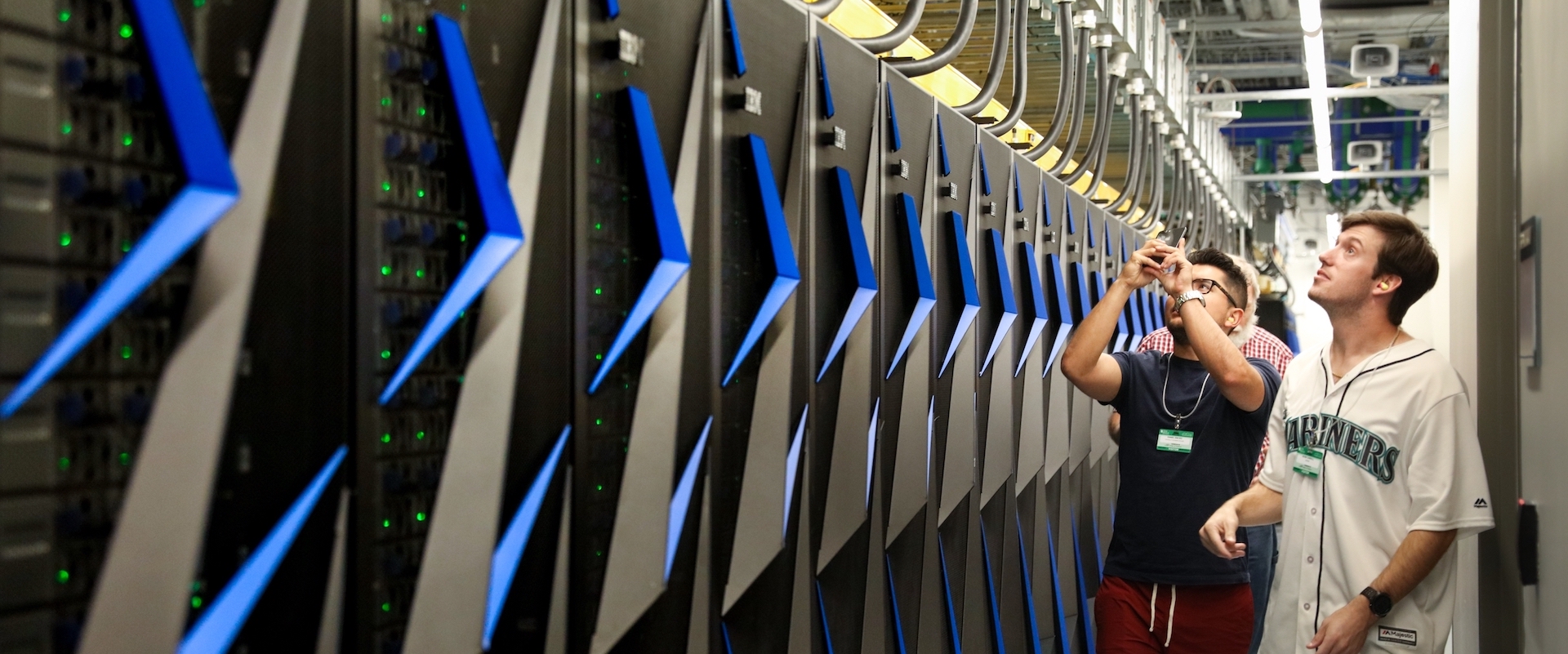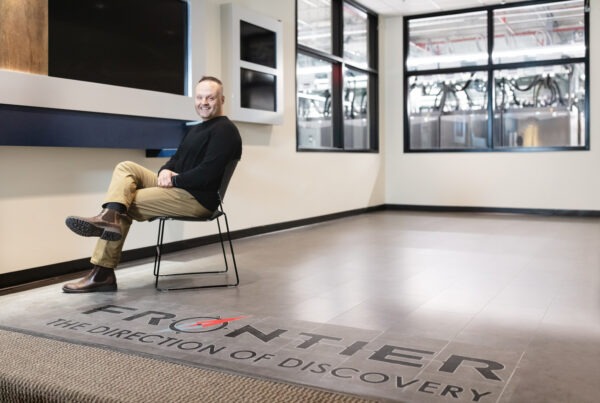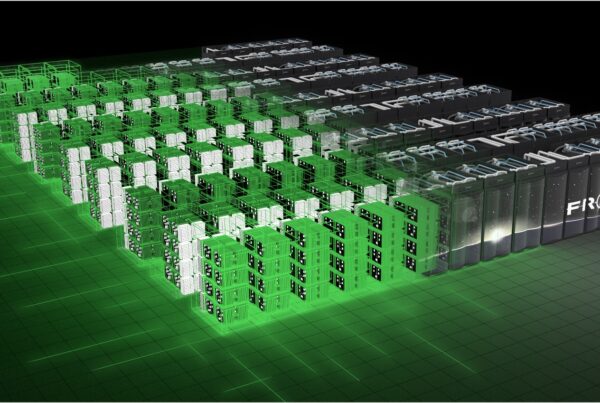This fall, staff at the US Department of Energy’s (DOE’s) Oak Ridge National Laboratory (ORNL) once again contributed to the “Introduction to Data Centers” course at the University of Tennessee, Knoxville (UT).
Now in its fourth year, the class had the largest and most diverse enrollment yet, with four disciplines represented: computer engineering, computer science, electrical engineering, and industrial engineering. This year’s students toured the data centers at the Oak Ridge Leadership Computing Facility (OLCF), a DOE Office of Science User Facility located at ORNL, earlier this fall as part of the course.
The multidisciplinary course, part of UT’s data center technology and management minor, introduces students to the many topics involved in building and commanding a data center. Because running a data center requires knowledge in a multitude of areas, no one discipline typically covers the broad spectrum of topics involved.

Dustin Leverman (right) shows the Titan supercomputer at the OLCF to students at the University of Tennessee, Knoxville. Image Credit: Genevieve Martin, ORNL
“We bring in a lot of disciplinary experts from ORNL,” said Stephen McNally, operations manager at the OLCF and the course organizer. “We cover the mechanical and electrical components, but we also focus on project management, commissioning, overall requirements-gathering, and networking.” The current curriculum was developed by McNally, UT interim dean of the College of Engineering Mark Dean, UT professor David Icove, and ORNL project specialist Jennifer Goodpasture.
The students enrolled in the course are provided a request for proposals at the beginning of the year, and they work together throughout the semester to submit a 20- to 30-page proposal to meet the requirements. Because students are often restricted to classes within their majors, the course stresses the interplay between disciplines and showcases areas that might previously have been out of reach.
“Hiring someone straight out of school to do what a data center person does is really difficult, because you have to understand so much about so many different disciplines,” McNally said. “This is primarily why we have such a low talent pool for data center–related jobs. We built this class to help solve that problem.”
The course is opening new opportunities for some students. Two of the students in this year’s class received scholarships to Infrastructure Masons (iMasons), an organization that brings digital infrastructure experts together to network, learn, and collaborate. The students’ enrollment in the course through the new minor degree program qualified them to apply.
Aside from the opportunity to apply for the iMasons scholarship, students learned from new data center professionals in industry this year. One of the course’s new speakers was Frank Hutchison of SH Data Technologies, who talked about his role in building Tennessee’s first tier 3 data center. Tier 3 data centers are available 99.9% of the time, which means they are only down for seconds at a time each year.
“This was the most engaging class we’ve had by far,” McNally said. “These students really got to see how these different disciplines work together to run, build, and operate data centers, and we are excited to continue bringing these folks in and helping to bridge this talent gap in the workforce.”
The team is excited that this course continues to gain traction with the students at UT and is making plans to accommodate more students next fall. The course is currently under consideration for possible expansion into a professional certification program or a distance learning course.
In addition to McNally and Goodpasture, the ORNL team contributing to the course includes Jim Serafin, Jim Rogers, Kathlyn Boudwin, Justin Whitt, Darren Norris, David Grant, Rick Griffin, Saeed Ghezawi, Brett Ellis, Bart Hammontree, Scott Milliken, Gary Rogers, and Kris Torgerson.
ORNL is managed by UT-Battelle LLC for the Department of Energy’s Office of Science, the single largest supporter of basic research in the physical sciences in the United States. DOE’s Office of Science is working to address some of the most pressing challenges of our time. For more information, please visit https://science.energy.gov.






